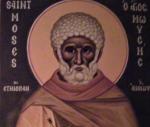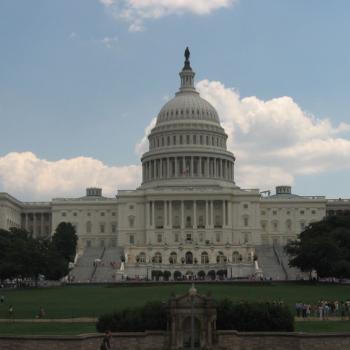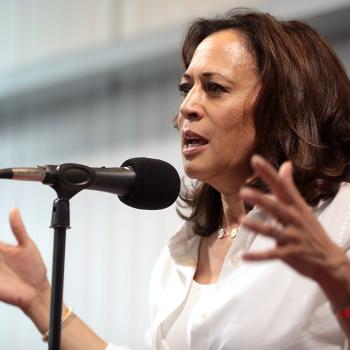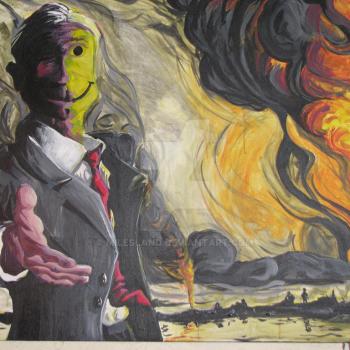
The COVID19 pandemic not only continues, its threat to society worsens as mutations are making the virus much more contagious. While several vaccines have been developed which help protect those vaccinated against COVID19, either by helping them resist infection, or to be able to deal with the infection better, it has proven difficult to mass produce and distribute those vaccines so as to properly ward off the COVID19 threat.
Through social distancing practices, it can sometimes seem as if the pandemic is being put in check. But we must not misunderstand why, at times, the number of COVID19 infections are declining. It is not because the pandemic is no longer a threat, but because we have done what is necessary to limit its spread. If we stop doing what we are doing, if we try to prematurely cut back on our safety precautions, numbers will go up, and COVID19 will prove to be as deadly as it ever was. We cannot ignore the threat. We must take it seriously.
Until we have enough people vaccinated against COVID19, we must not ease up our fight against the pandemic. We must not let ourselves think the threat is over and society can return to the way it was before the pandemic. Now is not the time. Every time people act as if it were, we see a rapid increase of those infected with and killed by COVID19; super-spreader events, based upon such ignorance, have only made things much worse and have slowed down any proper containment of the threat.
Government must work to protect its citizens. It must work for the common good. It must do what it can to stop the spread of COVID19. Even if people do not like what needs to be done, they will hate even more what happens if nothing is done to protect them. Sadly, it seems many in government do not want to do what must be done; for one reason or another, they often give mixed messages to the populace, leaving many of them confused. This can be seen in the way sports are often given preferential treatment: how and why are major sporting tournaments, bringing in large numbers of people into a given area, allowed to continue? All they do is risk spreading the virus, both by the fact that with a large number of people coming together, it is likely many of them will have COVID19, putting those in contact with them at greater risk, as it is that those who then get infected will return to their homes, spreading the virus far and wide. This, is seems, is what happened during the summer with the Sturgis 2020 biker rally, as many people came to the event, the disease spread through the attendees, and then they returned home, making the COVID19 threat that much worse for everyone else.
Similarly, major sporting events like the Super Bowl, not only being potential super-spreader events due to the participants, encourage people to come together and party, ignoring the threat of the virus. Yes, experts are warning people not to have such parties, but people will not listen. They want to do as they have normally done. They think if there were any serious risks involved, the Super Bowl would not be allowed, therefore, they think COVID19 is under control, that the threat is contained. Thus, they feel as if they should be free to party. The optics of the event encourages people to think everything is normal. They think if COVID really was a threat, government would not allow such events to happen. If experts are warning them to not have a party, they think it is just based upon unjust paranoia, or worse, some underhanded attempt to wrestle freedom from the people. This is why it appears 25 percent of those planning to watch the Super Bowl plan to be at a party as if COVID19 was no longer a threat.
In March, the NCCA plans to have its annual basketball tournament. This year, they plan to have it all in Indianapolis and its immediate surroundings. This is a big event. Even if it were limited only to those involved with sporting event itself, it risks becoming a super-spreader event because it will bring people from all around the United States together. They will be put in contact with each other. If any of them has COVID19, it will easily spread to others, and then those newly infected, once the tournament is over, will return to their homes, taking the virus with them. The NCAA thinks they can keep things safe by limiting the interaction between the teams and the host city, but if one considers the dynamics of the event, it is foolish to think they can really promise such safety. The teams will be housed in hotels (obviously). Three restaurants will be open to the teams. Practices, and the games themselves, will be held at major convention centers and university courts. This means, the members of the team will be in contact with outsiders, which provides ample opportunity for COVID19 to spread. They will have contact with hotel staff; they will have contact with those working in the restaurants they go to; they will have contact with people in the places in which they practice and play their games. Those people, likewise, will then be in contact with others, and so, will be able to act as the connecting link between the teams and the general populace. While there will be some attempts to isolate the teams from the city, it is clear, they will not be entirely isolated, and there will be multiple ways in which the teams can come in contact with the general public. If this the only threat associated with the tournament, this would be bad enough; certainly, the NCAA has reasons to try to keep the teams as safe as possible, and so limit their interactions with the public, but if things go as they wish, not only will the teams be at the events, fans will be too. Such fans will be from all over the United States, and they will not be as isolated or socially distant from each other, of from Indianapolis, as the teams. Finally, as with the Super Bowl, the tournament will encourage people to have parties, ignoring safety precautions, and so provide another way in which the tournament can lead to another rise in COVID cases across the United States.
Given the risks involved with major sporting events, especially tournaments which brings a large number of people together, the optics of allowing these events to continue, indeed, the optics involved in promoting them, make it seem like COVID19 is not really a threat. While those who are educated on the subject will realize the threat continues, those who do not have the time or ability to study and understand the threat will think the promotion of these events and the approval of government officials for these events suggests COVID19 is not a serious problem after all. They will see the contradiction between what is promoted for COVID19 safety and what is actually being done concerning such sporting events. To be sure, not all sports are of equal concern: full contact sports with large followings and more potential to have parties associated with them are the worst offenders and should be the ones which we are most concerned about. However, it also seems that sports has so much power, so much money and influence, officials are ignoring the risks involved with such events. They do not understand or care if they are giving mixed messages to the general populace. And as such, by giving in to the sporting lobby, they should be held accountable for what happens.
Christians are called to be concerned for the welfare of our neighbor. We cannot be like Cain and suggest we are not our brother’s keeper. We are to work for the common good. That is how we look after each other. Ignoring the common good, we risk losing our salvation, as Jesus consistently told us what we do for those in need is how we will be judged. Looking after and taking care of the common good, making sure people do not needlessly have to die is important. If we put selfish interests and desires ahead of the needs of society, we risk gaining the world and losing our soul. This is why Roger Bacon, writing on the “active science,” was to say that moral science, and with it, civics, is concerned with our salvation:
This active science is called the moral science and the civil science, which instructs man as to his relations to God, and to his neighbor, and to himself, and proves these relations, and invites us to them and powerfully influences us thereto. For this science is concerned with the salvation of man to be perfected through virtue and felicity ; and this science aspires to that salvation as far as philosophy can.[1]
Those who think concern for the common good is unimportant, that is a side point, and it has nothing to do with our salvation, should read Scripture carefully. From God’s interaction with Cain, to the declarations of the prophets, and then the dictates of Christ, we find our relationship with our neighbor has an important role in determining our relationship with God and therefore our salvation We must be concerned for the common good. We must look after and help our neighbor, protecting them when we can. This is why our response to the COVID19 threat is important; do we show ourselves to be concerned with our neighbor, doing what we can to save their lives, even if it is inconvenient, or do we say to hell with it all, creating the conditions necessary for our own personal hell?
The threat associated with COVID19 is not over. We should not take it lightly. We should not prematurely end social distancing activities when it seems cases of infection are on the decline. When we do so, we create the condition for another, worse wave of COVID19. Sporting events should not be given special privilege. If they are risky, they should not be allowed, and if they are allowed, every efforts should be done to minimize the risk and make sure the public does not get a mixed message concerning the threat of COVID19. Sadly, it seems, at least in regards to sports, officials are more interested in immediate economic interests than protecting society, and so they are just as guilty as anyone else who thinks we can sacrifice people for the sake of immediate economic gain.
[1] Roger Bacon, Opus Majus. Part II. trans. Robert Belle Burke (Philadelphia: University of Pennsylvania Press, 1928), 635.
Stay in touch! Like A Little Bit of Nothing on Facebook.
If you liked what you read, please consider sharing it with your friends and family!













